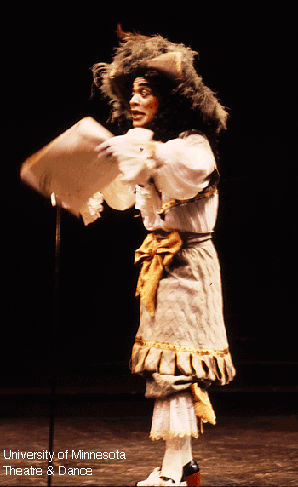This resource for prospective review authors was originally compiled by Julia A. Walker for the Book and Performance Review Writing Workshop at the 2013 Association for Theatre in Higher Education conference in Orlando, and includes contributions from Sarah Bay-Cheng, Chase Bringardner, Kim Solga, Keren Zaiontz, and Robert B. Shimko.
For Book Review inquiries—
• Check the “Books Received” list to see if there are any recent titles of interest (in general, books should have been published within the last 2 years); OR check online press catalogues to see if a book in your field has been recently published/is scheduled soon for release.
• Email the Book Review Editor, requesting a commission for that title and explain how your area(s) of research qualify you as a reviewer.
• Attach a CV (with rank and affiliation clearly indicated) and a brief writing sample (e.g., a review or 2-3 pages of an academic paper).
N.B.: most journals commission reviews; they do NOT accept reviews that have already been written at the time the inquiry is made.
N.B.: authors are NOT allowed to recommend reviewers for their books.
When preparing to write the review—
• Familiarize yourself with the journal’s review format by consulting past issues,
• Read with an eye toward the book’s argument as well as content,
• Read with an eye toward the debates/scholarly conversations it engages,
• Assume an objective perspective (i.e., don’t fault the book for not being the one you would have written on that subject; assess it on its own terms).
When writing the review—
• Offer a clear and concise summary of the book’s contents, training your primary focus on the book’s core argument as demonstrated in individual chapter discussions. (N.B.: for edited collections, focus on the editor’s overall conception of the book, selecting representative essays that realize that vision or fail to do so. Depending upon the number of essays collected, weigh the balance between summarizing each contribution and offering a comprehensive sense of the collection as a whole.)
• Identify the book’s strengths, focusing on its success or failure at meeting its own goals. Acknowledge the contribution(s) it makes to the field(s) it engages and identify the implications and potential impact of its conclusions.
• Note any weaknesses, identifying logical inconsistencies, gaps in research, factual errors, and/or gross typographical/editing problems that appear. (N.B.: a thorough and responsible review isn’t required to list faults if none merits serious attention.)
• Stay within the targeted word limit (generally 1000 words for a single-title review; 1500 words for a double review).
• Check quoted materials for accuracy and cite page numbers. (N.B.: given the short form of the review, quote only key terms or salient brief passages.)
• Meet your deadline. If you need to ask for an extension, contact the Book Review Editor as soon as possible to ask if such an arrangement is possible.
For Performance Review inquiries—
• Familiarize yourself with the journal’s review format by consulting past issues,
• Email the Performance Review Editor, requesting a commission to review a forthcoming performance and explain how your area(s) of research qualify you as a reviewer.
• Attach a CV (with rank and affiliation clearly indicated) and a brief writing sample (e.g., a review or 2-3 pages of an academic paper).
N.B. In general, university theatre productions and community theatre productions are not eligible for review. Artistically significant professional touring productions that appear at university theatres, however, are likely eligible for review.
When preparing to write the review—
• Take notes at the performance with an eye toward the documentary function of the review, recording as much detail as possible.
• Reflect on the cultural/artistic significance of the performance, including its reception, setting and historical context.
When writing the review—
• Be aware of your audience and its scholarly expectations, offering a detailed description of the performance, but also analyzing key elements that demonstrate its cultural and/or artistic significance.
• Advance an interpretation of the performance in a clear, tightly focused argument.
• Since up to a year will have elapsed between the performance and the publication of the review, use the past tense. Do not quote sources external to the performance.
• Stay within the targeted word limit (for TJ: 1000 words for a single performance; ≤ 2000 words for a festival; for PR: 2500 words).
When submitting the review—
• Meet your deadline. Because performance reviews are time-sensitive, an extension may be difficult to arrange.
• Include a photograph (jpg; ≥300 dpi) and secure permission for its publication, submitting both at the time your review is due.
CONTACT INFORMATION for Book and Performance Review Editors, 2013-14:
JOURNAL OF DRAMATIC THEORY AND CRITICISM (books): Elizabeth A. Osborne <bethosborne@gmail.com>
MODERN DRAMA (books): Nicholas G. Salvato <ngs9@cornell.edu>
PERFORMANCE RESEARCH (both): Keren Zaiontz <k.zaiontz@qmul.ac.uk>
TDR (books): Branislav Jakovljevic <bjakov@stanford.edu>
THEATRE HISTORY STUDIES (books): Robert B. Shimko <rbshimko@central.uh.edu>
THEATRE JOURNAL (books): Ryan Claycomb <tjbookreviews@gmail.com>
THEATRE JOURNAL (performances): Daniel Sack <dsack@english.umass.edu>
THEATRE RESEARCH INTERNATIONAL (books) Stephen di Benedetto (USA) <sdibenedetto@miami.edu> Veronica Kelly (Australia) <v.kelly@mailbox.uq.edu.au> Lourdes Orozco (Europe) <L.Orozco@leeds.ac.uk>
THEATRE SURVEY (books): Kim Solga <ksolga@uwo.ca>
THEATRE TOPICS (books): Chase Bringardner <cab0013@auburn.edu>

